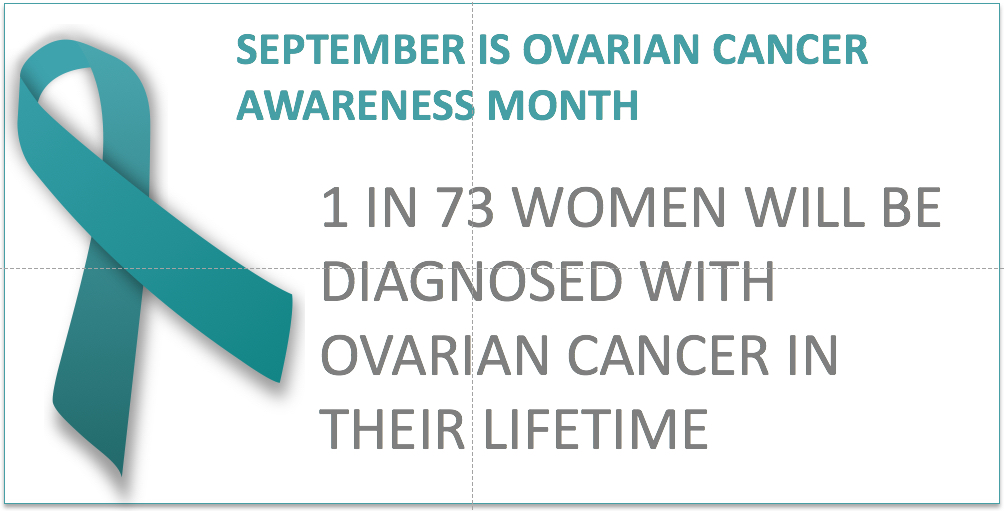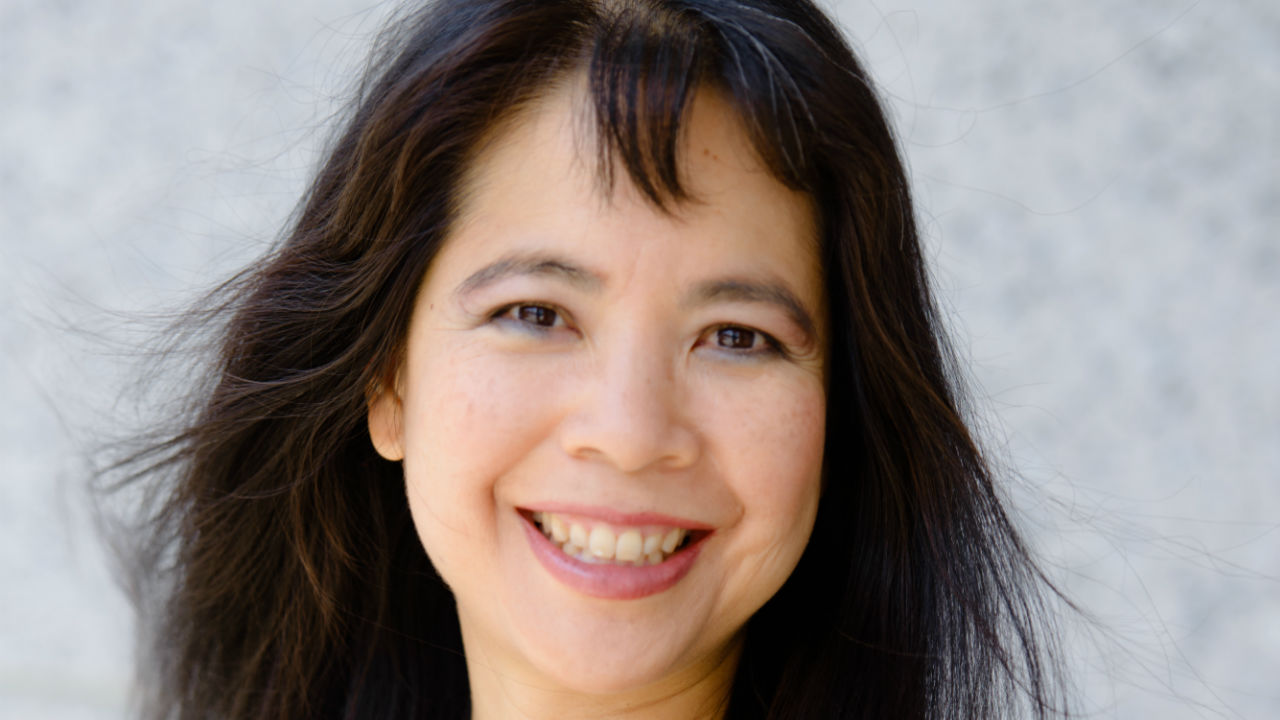Do you know the symptoms and warning signs of ovarian cancer? Dr. Jennifer Wu, an OB/GYN at Lenox Hill Hospital in New York explains the latest medical advice about detection and screening.
DENISE: Hello there I'm Denise Richardson for howdini.com. Ovarian cancer has been called the silent killer because by the time it's discovered, it's often already advanced. But doctors now believe that there are some symptoms and warning signs to help detect it earlier. Here to help us recognize the signs of ovarian cancer is gynecologist Dr. Jennifer Wu. Dr. Wu thank you for being with us. How many women are getting ovarian cancer every year?
DR. WU: In 2002, there were 23,000 cases diagnosed. So overall numbers are small, but the mortality is very high because usually the cancer is at an advanced stage at diagnosis.
DENISE: I recently had a girlfriend who was recently diagnosed with ovarian cancer. One of the symptoms that she said she had was bloating. And you know in retrospect over the last couple of years if she had known that was a symptom she would have gone to the doctor. What are the other symptoms?
DR. WU: Some of the other symptoms of ovarian cancer include abdominal pain, increase in abdominal girth, bloating, distention, sometimes urinary symptoms, frequency of urination.
DENISE: Can they be the kind of symptoms that can appear to be something else?
DR. WU: Unfortunately these are very common symptoms. If you ask patients, have you ever had bloating, most patients will say oh yes at one point or another. I think to try to determine the difference whether it's an ongoing problem and persistant. For more than a month. Oftentimes patients will go to a primary care doctor, not necessarily to their gynecologist and they need to be a little bit specfic about how long they've been having the symptoms. The doctor will generally do a medical exam and order a sonogram if there's anything suspicious with it.
DENISE: So is that the only testing, the medical exam, the sonogram, what other testing is involved?
DR. WU: There's also a blood test called the CA-125. It's a good test for patients who are perimenopausal or menopausal. CA-125 can be falsely elevated in younger patients by things like ovulation which occurs every month. So it's a more specific test for older patients. And that can help us to determine whether this could be an ovarian cancer problem or not. Unfortunately it doesn't detect early ovarian cancer, so we're still looking for the ideal test to detect early ovarian cancer.
DENISE: Are those tests always conclusive?
DR. WU: Unfortunately physical exams, sonograms, CA-125, these are not conclusive. The only way to be conclusive is to do a surgical exicison and then study the specimen in pathology.
DENISE: Who is predisposed to ovarian cancer?
DR. WU: Certain patients who have a family history. There's something called BRCA 1 and 2 and these are genetic markers that can show that a patient is more predisposed to ovarian cancer. Patients with family history, patients with a personal history of breast cancer.
DENISE: And what's the prognosis? What's the treatment for ovarian cancer?
DR. WU: The treatment for ovarian cancer is surgical excision often in conjunction with chemotherapy. If ovarian cancer is caught in the early stage, stage 1, cure rates are great, 90 to 95 percent. But unfortunately most ovarian cancer is caught at an advanced stage and five years survival is something as low as 20 percent.
DENISE: What is an early stage?
DR. WU: So staging with ovarian cancer is related to where the cancer is. Early cancer, or stage 1, means that the cancer is just confined to the ovary. In advanced stages, the cancer has spread to adjacent organs and things like that, like the intestines, the liver, the lungs. So it becomes very difficult to treat cancers once they've spread beyond the ovary and spread to other body parts.
DENISE: Chemotherapy is not helpful in that circumstance.
DR. WU: Patients are usually treated with surgical excision and chemotherapy, but usually it doesn't get all of the cells, so then patients will experience a relapse, the ovarian cancer comes back. Then they may need additional chemotherapy.
DENISE: When a woman goes to her gynecologist and maybe she doesn't have a family history of ovarian cancer, she's simply scared of the possibility given the statistics out here, what should she do?
DR. WU: Unfortunately we don't have a great screening test in terms of sonograms or blood tests or anything like that, that could be used for the widespread population that could be used to prevent ovarian cancer. We're still working on that. But, I think that patients that try to take care of themselves and go for annual checkups, we have a better chance of finding ovarian cancer early in them.
DENISE: Dr. Wu thank you very much for being with us. I'm Denise Richardson for howdini.com.

Howdini is life’s little instruction manual, in HD. We’re all about bringing together the top, most respected experts in their fields to help us be the best we can be at all of the little and not-so-little challenges of our complicated lives. Howdini is the place to be for the know-how you want, when you need it. Or maybe it’s the know-how you need, when you want it. Whatever. We’re here to help. So come in and look around, won’t you?
We think you’ll love finding everything you want to learn about in one convenient place, and as we grow and add more categories and more Howdinis, you’ll be doing less surfing and more learning right here. And unlike television, Howdinis aren’t limited by time—we don’t have to break for commercials, and we’re always on.
Who is Howdini?
People often ask us, is there an actual person who is Howdini? And the answer is, it’s kind of like Lassie. Just as there were many Lassies, there are many individuals who are called Howdini. In fact, each of our experts is a Howdini, and, like all those Lassies, they really know their tricks. (Although so far there is no ‘How to tell your master that Timmy is trapped in the old abandoned mine’ segment)
Our gurus are people you know and trust because you’ve been getting advice from them for years, at places like Good Morning America, The Today Show, Money, Prevention, and Food and Wine (to name just a few). Many are best-selling authors. Others, like our medical experts, are respected leaders in their fields.
Howdini History
The first Howdini was Joanna Breen, who left a comfortable career at ABC’s 20/20 to create a how to video website after one too many frustrating experiences with handymen who weren’t that handy. Joanna had traveled the world reporting with Barbara Walters and others on injustice, outrage, and tragedy, but now it was time to turn her talents to dealing with crises closer to home, like what do you do if you drop your diamond ring down the drain. Joanna is the quintessential can-do girl, so she didn’t find the prospect of launching a gigantic website the least bit daunting. (Ok, that last part isn’t entirely true.)
Joanna convinced an old ABC News buddy, Shelley Lewis, to join her. Shelley had supervised roughly 9.7 million helpful how to segments during a long career executive producing television shows like Good Morning America and CNN’s American Morning. A self-described “info-pig” who loves all kinds of information programming, she is never happier than when she’s learning an amazing new tip that she can annoy share with everyone she knows. Needless to say, Howdini was a dream gig for her. A career woman, a wife, a mother, and author of two books, Shelley considers herself equally challenged by all the facets of her life.
Joanna and Shelley were introduced to marketing executive Alison Provost by a mutual friend who knew that Alison had what they needed - entrepreneurial experience, patience, and a checkbook that still had checks in it. Joanna and Shelley could see right away that Alison should join Howdini. They figured that they would take care of the programming, and Alison would bring trustworthy sponsors to help pay the bills. It took Alison significantly longer to be convinced, maybe because she was crazy busy running a marketing firm called PowerPact, which she continues to oversee while serving as the biggest of big cheeses at Howdini. But whether it’s playing Suduko or launching a new business in a field she knows little about, Alison loves the challenge of a good puzzle, It wasn’t long before she began dropping obscure internet terms like “user-interface” and “googlebot” into casual conversation.
What’s Next for Howdini?
Our goals are modest. Complete and total domination of the internet, crushing Google, Microsoft, and any other punks who get in our way. (Hey, it’s a just a goal.) But until then, we will content ourselves making the best, most professional, most credible how to videos you can find anywhere. We want to help you solve your career issues, your parenting problems, your money troubles. We want you to be more glamorous, healthier, and less stressed out. We want you to check Howdini every day for fun, interesting, useful advice from experts you know and trust.
We want to make Howdini the community you love to be part of every day, To do that, we need to hear from you. Please share your suggestions, rate and comment on the Howdini videos, and the blog, (The Howdini blog). Tell us what you’d like us to create for you.
And then, when we’ve achieved that, it’s back to working on complete and total domination of the internet.


































Add a CommentComments
There are no comments yet. Be the first one and get the conversation started!